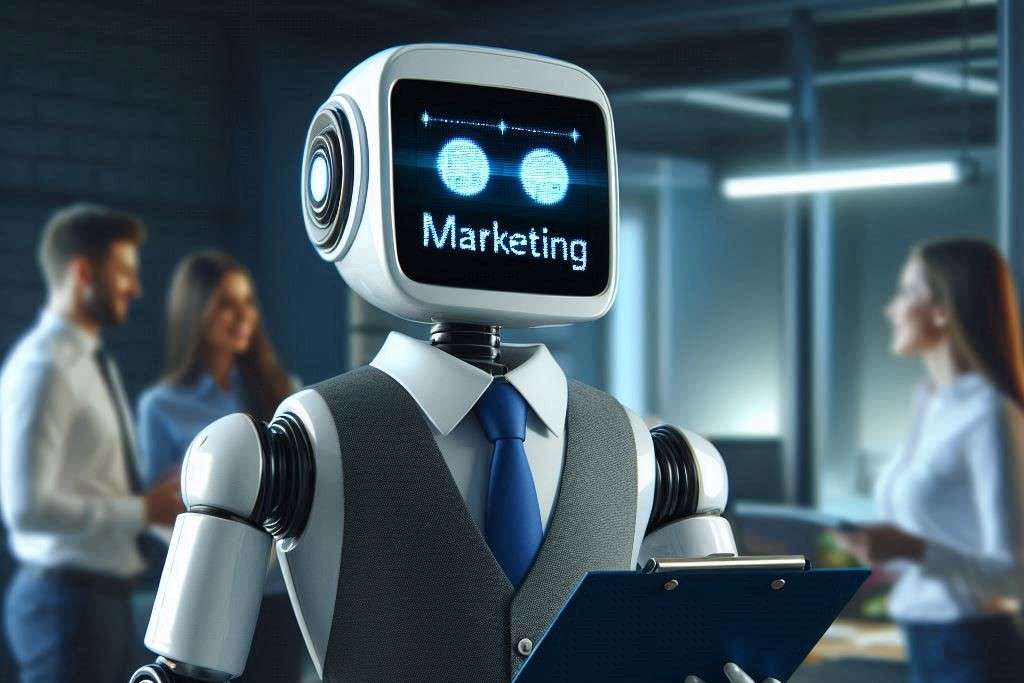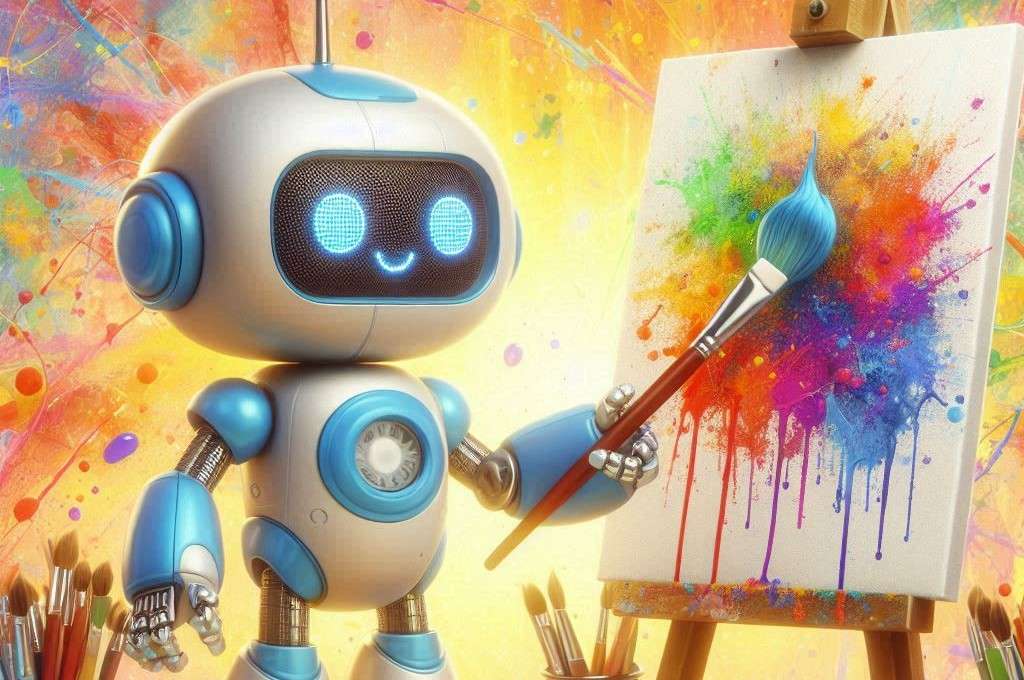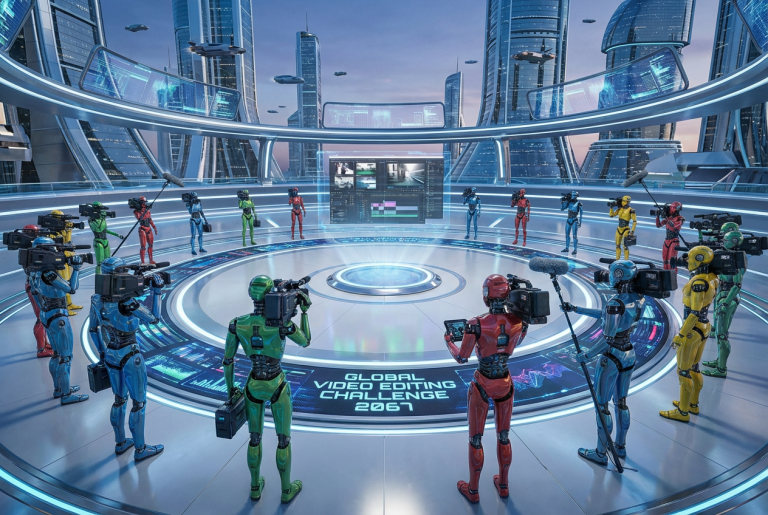Beyond the Buzzwords: Are AI Tools Transforming Marketing?

The art of modern marketing has evolved into a high-stakes game of innovation and adaptability. Traditional methods of ad creation and optimization are simply not enough to cut through the noise and capture the hearts and minds of today’s discerning consumers. But fear not, a new champion has emerged to change the marketing landscape forever: AI tools.
Forget the Hollywood clichés of sentient robots and dystopian futures. AI in marketing isn’t about replacing humans in creative tasks, so we can wash our dishes (the irony, right?); Generative AI it’s about amplifying human abilities, empowering them with tools that were once the stuff of science fiction.
Whether it’s crafting compelling copy, designing eye-catching visuals, or predicting consumer behavior for better ROI, AI is proving to be the unsung hero of modern marketing departments. From crafting compelling ad copy and designing eye-catching banners with AI-powered banner generators to predicting consumer behavior with uncanny accuracy, AI is revolutionizing the way brands connect with their audience.
A report by MailChimp found that 88% of marketers believe they must implement AI technology to stay competitive, while a MarketingHire report found that 68% of marketers are already incorporating AI into their workflows.
The Power of AI: More Than Just Words and Images
AI’s impact on marketing has been powerful and swift. It’s not just about automating the boring, repetitive tasks or replacing human creativity; it’s about augmenting human capabilities and reaching new levels of efficiency, personalization, and insight. Do more with less.
Take, for instance, the humble banner ad. Once a static image with limited impact, AI-powered banner generators have transformed it into a dynamic, interactive experience. These tools can create personalized banners that adapt to individual users, incorporating relevant product recommendations, dynamic pricing, and even real-time social proof. This level of personalization can significantly boost click-through rates and conversions, making your banner ads work harder for you. The results? Improved conversion rates and increased profits.
But AI’s reach extends far beyond banner ads. It’s about transforming every touchpoint of the customer journey, from initial awareness to final conversion. Here’s how:
- Hyper-Personalized Experiences: AI digs deep into customer data, analyzing demographics, behavior patterns, and even subtle preferences to create tailor-made experiences that resonate on a personal level. Whether it’s a personalized product recommendation, a targeted email campaign, or a dynamic website that adapts to user behavior, AI enables you to deliver the right message to the right person at the right time.
- Predictive Analytics for Smarter Decisions: Gone are the days of relying on gut instinct and guesswork. AI-powered predictive analytics tools can forecast customer behavior, allowing you to anticipate their needs and proactively address them. This means you can optimize your campaigns before they even launch, maximizing ROI and minimizing wasted resources.
- Content Creation That Captivates: AI-powered writing tools can help you craft compelling ad copy, blog posts, social media captions, and more, all in a fraction of the time it would take a human. But it’s not just about speed; AI can also analyze existing content to identify areas for improvement, suggest stronger headlines, and even optimize for specific keywords to boost your search rankings.
- Visual Storytelling That Sells: AI isn’t just about words; it’s about visuals too. AI-powered design tools can generate stunning graphics, videos, and interactive content that captivate your audience and leave a lasting impression. These tools can even analyze visual trends and user preferences to ensure your creative assets are always on point.
Real-World Results: AI’s Marketing Triumphs

The proof of AI’s impact isn’t just in the technology; it’s in the results. Companies across industries are reaping the rewards of AI-powered marketing. From increased click-through rates and conversion rates to improved customer engagement and brand loyalty, AI is proving to be a game-changer when used right.
One major e-commerce retailer saw a dramatic increase in sales after implementing an AI-powered recommendation engine that personalized product suggestions for each customer. A financial services firm used AI-generated content to educate potential clients, resulting in a significant boost in lead generation through quality content marketing. And countless businesses have seen their social media engagement soar thanks to AI-powered chatbots that provide instant customer support and personalized interactions.
The Ethical Considerations of AI in Marketing
As AI continues to evolves in marketing and beyond, ethical questions arise and they must be addressed. Transparency is the key: when AI influences consumer decisions through content generation, personalization, or recommendations, consumers deserve to know. Openly disclosing the use of AI fosters trust and empowers informed choices.
AI algorithms, while powerful, are susceptible to bias. If the training data is biased, the output can perpetuate and amplify discrimination. Marketers must diligently audit algorithms and mitigate biases to ensure fairness and inclusivity.
Data privacy is another critical concern. AI’s strength lies in analyzing vast amounts of data, but this raises questions about collection, storage, and usage. Marketers must be transparent, obtain informed consent, and adhere to ethical guidelines to build and maintain consumer trust.
Responsible AI usage in marketing involves:
- Prioritizing transparency in AI usage and explanations.
- Regularly auditing AI algorithms to detect and rectify biases.
- Safeguarding consumer data with informed consent and ethical practices.
- Striving for fairness and inclusivity in AI-powered campaigns.
Addressing these ethical concerns head-on allows marketers to harness AI’s power responsibly, fostering trust and long-term success.
The Human-AI Partnership: The Key to Marketing Success
While AI tools transforming marketing, it’s important to remember that they are not a replacement for human creativity and intuition. The most successful marketing campaigns often involve a synergistic partnership between humans and AI, where each leverages their unique strengths.
Humans excel at strategic thinking, emotional intelligence, and understanding the nuances of brand voice and messaging. AI, on the other hand, excels at data analysis, automation, and optimization. By combining these strengths, marketers can create campaigns that are not only effective but also engaging, authentic, and memorable.




